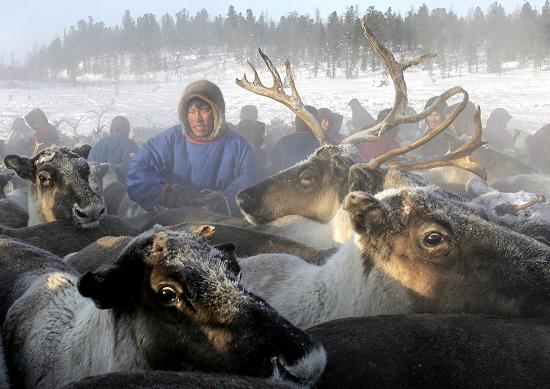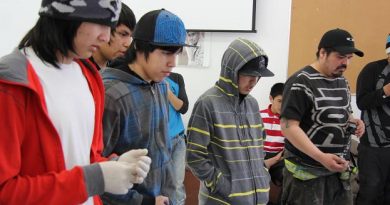Russia orders shutdown of Arctic indigenous organization
 Moscow has ordered the Russian Association of Indigenous Peoples of the North, Siberia and Far East (RAIPON) to shut down until until April 2013, the Barents Observer reports.
Moscow has ordered the Russian Association of Indigenous Peoples of the North, Siberia and Far East (RAIPON) to shut down until until April 2013, the Barents Observer reports.
Russia’s Ministry of Justice says the statutes of RAIPON are not in line with federal law. The Barents Observer reports that Pavel Sulyandzigi, deputy leader of RAIPON, is planning to appeal the decision and will reach out to its international partners for help.
RAIPON First Vice-President Rodion Souliandziga says he considers the Justice ministry’s move a political one.
“Our charter has been in place for 22 years and we haven’t had any problem until now,” Souliandziga told AFP. “They’re trying to keep us quiet. They want to eliminate us.”
RAIPON was founded in 1990. The association’s website says it represents 250,000 people, representing 41 indigenous groups, in Russia’s North.
On Wednesday, the group posted an open letter on their website calling on Arctic Council members Canada, Denmark, Iceland, Finland, Norway, Sweden and the United States to denouce the actions taken by fellow member Russia.
“RAIPON appeals to SAO of the Arctic Council to call upon the Russian government to stop administrative and political pressure and interfearence into self-governence of indigenous people of the North, Siberia and the Far East,” the statement says.
By Wednesday, the organization had put up letters of support on their website from groups such as the Arctic Alliance and the Centre of Northern People in Norway.
Related Links:
Russian Association of Indigenous Peoples of the North, Siberia and Far East (RAIPON)
Write to Eilís Quinn at eilis.quinn(at)cbc.ca



